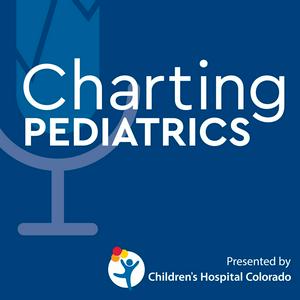Adolescence is full of firsts. Big questions about bodies, safety and choices rise to the surface. Contraception can feel intimidating for teens and complex for pediatricians. However, it's also a powerful touchpoint to shape safety, confidence and long-term health. In this episode, we're unpacking the role pediatricians play in guiding teens through reproductive care, where pediatricians can transform a potentially awkward moment into an opportunity for empowerment.
For this discussion, we're joined by Tricia Huguelet, MD. She is the section chief of the Division of Pediatric and Adolescent Gynecology at Children's Hospital Colorado. In addition to being a professor at the University of Colorado School of Medicine, she is the program director for the Pediatric and Adolescent Gynecology Fellowship, and co-director of the Young Women Bleeding Disorders Program.
Some highlights from this episode include:
When pediatricians should feel confident to prescribe contraception
How to handle consent and confidentiality
What methods would be best for each patient
Most common barriers to access
For more information on Children's Colorado, visit: childrenscolorado.org.


